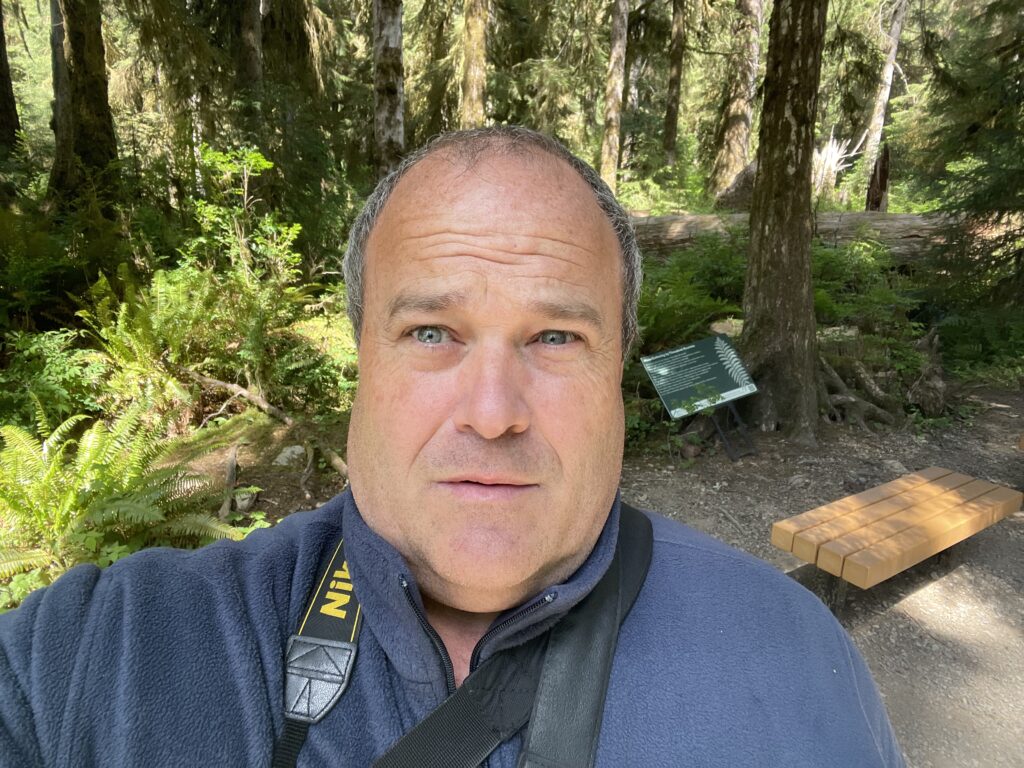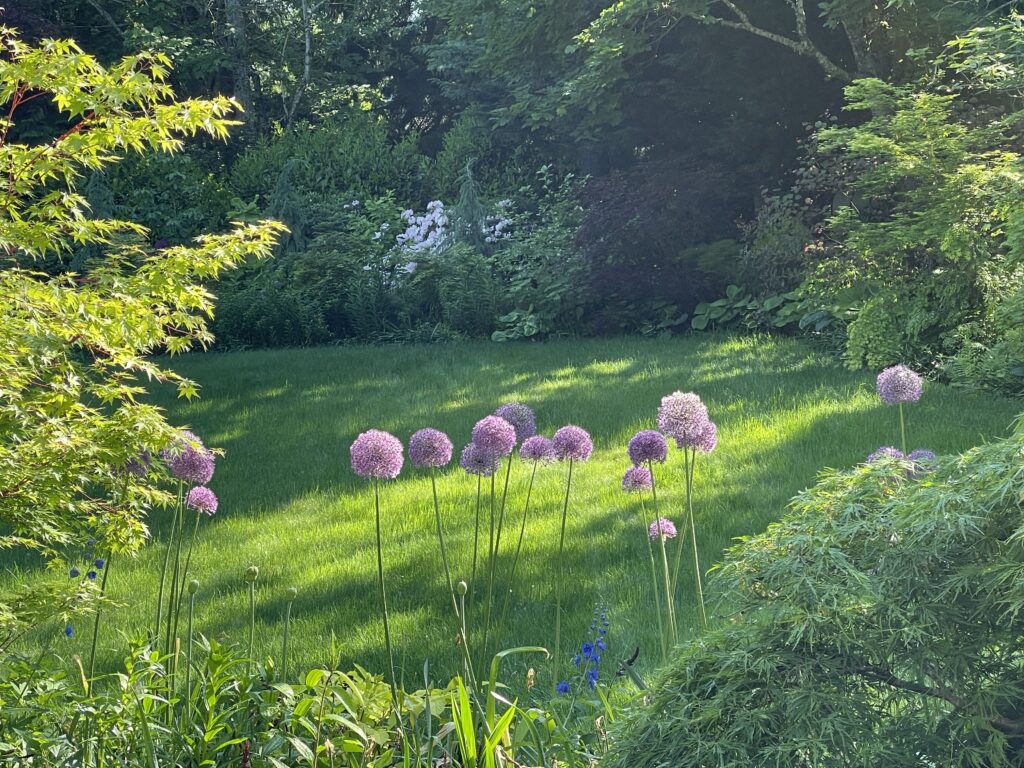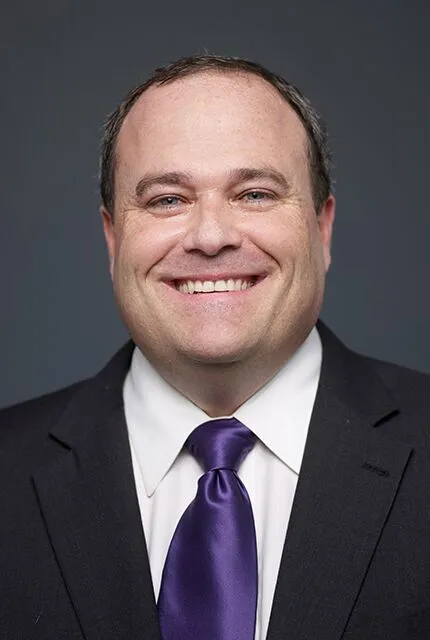Foster Applied Strategy Faculty Spotlight – Russell Walker
Get to know Foster’s Associate Teaching Professor of Marketing Russell Walker, who teaches the core MBA Applied Strategy course – a hands-on, consulting-type applied learning experience where teams of MBAs drive and deliver creative solutions to a critical business challenge proposed by a company. He also teaches two STEM certified elective courses – Enterprise Risk Management and Analytics Consulting Lab.
Please tell us a bit about your background.
I grew up in Tampa, Florida in a bilingual Spanish/Cuban household. As I moved to other parts of the country, I began to realize the uniqueness of my upbringing. It also helped me appreciate and value the uniqueness in others and their backgrounds. As far as education, I studied Civil Engineering Systems at the University of South Florida and did my PhD and Masters at Cornell University. I subsequently got an Executive MBA at the Kellogg School of Management at Northwestern University. After graduate school, I worked in Financial Services and Banking. It was very good, but along the way various friends and schools asked me to teach in their classes, as side gigs. I liked it and so did the students, so I did more of that and decided to pursue a career teaching MBAs and executives at the graduate level, by joining the faculty at the Kellogg School of Management. I have authored business cases, articles, and multiple books on risk management and analytics. The books have received various awards and are used in business schools across the country. Many organizations that you would recognize including The World Bank, International Finance Corporation (IFC), CME Group, Microsoft, Securities and Exchange Commission (SEC), Federal Bureau of Investigation (FBI), Federal Reserve, and the Bank of England (and many others) have asked for my advice on projects and initiatives. I am especially proud of advising Menus of Change, a joint venture between the Culinary Institute of America and the Harvard School of Public Health, focused on solving the food and environmental challenges facing the world. I advise them on the economics of food production and supply.
On a personal level, I am married and have two children. We enjoy traveling, especially to the National Parks. I enjoy gardening, horticulture, and wood design. I have designed various pieces of furniture in my home and my wife has given me free reign over the garden. I do enjoy other geeky things like photography, history, chess, and maps. I listen to Cuban music each day. It makes me feel alive.


Photos: Left: Walker hiking the Olympic National Park. Right: Walker’s “pollinator garden” which he designed and cultivated to attract bees, dragon flies, butterflies and hummingbirds.
What excites you about your subject area and what are some of your research interests?
I broadly work in Analytics. I study how to do it, how to organize teams to do it well, and the types of problems that can be solved with novel data. This area of business continues to expand, because we make more data and have the resources to process that data. Just a few years ago, machine learning and artificial intelligence were only dreams. Now we live with both. In a few more years, we will be experiencing even more advances in Analytics embedded in more parts of our lives. It is very exciting!
Which factors influenced your decision to join UW Foster?
The people and community. I met some people from Foster and they impressed me with their authenticity. I think Foster does a great job of supporting people. Plus, we get to work in a community rich with business innovation and natural resources. It is a rare combination. It is fantastic, really.
What do you find meaningful about your time thus far at Foster?
Being part of our students’ career growth is both humbling and rewarding to me. In just four years here, I regularly get calls from graduates telling me about their careers and how the classes helped them so much. It is wonderful to hear about their success and know that I had a chance to support them. That is very rewarding to me, because it shows the impact and difference that we all make in the classroom.
How does your work align with Foster’s purpose? Purpose statement: Together…We Foster Leaders; We Foster Insights; We Foster Progress…To Better Humanity
Foster’s values begin with people and challenge us to do better for everyone around us. I especially like that because, in my experience, success and progress come with sharing and working together. In business, family, and life, there is so much more attainable when you partner. I think Foster gets that. As an environmentalist, I also value Foster’s deep commitment to exercising its values in sustainability and environmental stewardship.
How have you worked to make your classroom/course curriculum inclusive?
To me, inclusivity begins with value and respect for each other. My approach is to value and respect everyone in a class by ensuring everyone’s voice and contribution is welcomed. I use discussion boards, in-class conversations, and self-reflection channels to bring everyone’s voice to the conversation. I teach various courses that touch on the intersection of business strategies and Diversity, Equity and Inclusion (DEI) concerns in contemporary business. It makes for a rich discussion and one in which everyone feels comfortable to contribute. And, I share my journey and experience as a Hispanic navigating the business and academic worlds, with emphasis on what I learned and how it can help others. I think we should all share our stories. I encourage and welcome that.
Any favorite memories from your experience with Full-Time MBAs/Evening MBAs?
During the COVID days, when we were doing everything online and meeting up was not possible, many students asked to meet up virtually to just socialize, not for class purposes. I thought it was a wonderful idea and we ended up having many such sessions. It was great to share in our challenges, and great to spend more time with them. It was memorable because we made something fun out of a challenging time. We all looked forward to those sessions.
How have you supported students outside the classroom?
Being one of the few professors with actual corporate experience, including building teams and hiring, I get lots of requests for advice on interviewing, resumes, and job-related questions. I’m happy to make time to help our students with their decisions. However, as I tell them, I can’t tell a student what to do, I help them evaluate and think about their choices and that will help them make a better decision. Each year, I support multiple case competitions and independent studies. It is a great way to give back to the school and help our students.
How is your teaching influenced by instructional best practices?
With over 11 years of college classroom experiences, I have seen many professors and styles. I gravitate to making my classes as experientially rich and conversationally driven as possible. In my view, a class is a set of stories – business, economic, analytical, etc.- that require telling. I like teaching by sharing stories. Cases are stories of a sort, of course. I like hearing stories and examining what makes a powerful, memorable, and useful story, too. Life is about experiences and learning from those. Stories are how we share experiences with others. So, embedded in all instructions is a story. I am after the story and sharing it with my students.
How do you maximize learning and keep students engaged?
I like to use stories, real-world cases, and experiences to root out discussions in theory. It encourages our students to bring their stories, and we have richer conversations because of it. I use contemporary cases and business questions to highlight the importance of our discussions in the classroom, too.
Are you doing work outside of Foster that influences what happens in the classroom?
I advise Menus of Change on economic challenges in the food supply and environmental stewardship. I help companies in analytics and risk management and serve on the PNW Data Analytics Leadership Board. I support Hispanic business efforts and work with not-for-profits that uplift fellow minorities. I help firms with risk management. All of these touch points and domains bring me real-world examples to share with my students. As I see interesting and valuable lessons in the real world, I bring those to class.
How have your relationships with industry experts influenced what happens in your class?
I have written many business cases that build on relationships I have with people in industry. I also lead the UW Analytics Leadership Series, in which I bring thought leaders to our classrooms. My goal is to make classes that reflect on the world. We study the business world around us, and linking the reality of business to our discussions makes the class relevant and indeed even fun!
How has your research influenced the curriculum at other business schools?
I have authored over 25 business cases, published through Kellogg and Harvard. The last time I checked, over 20,000 MBAs internationally read and study my cases, each year. It also means hundreds of business faculty have selected my cases for use in their classrooms. It is great to know that the cases are so valuable to so many MBAs.
Are there components of your courses that can help students build their resume?
Yes, Applied Strategy and Analytics Consulting Lab, both of which I teach, allow students to work on real-world projects with leading firms. I think these classes, in particular, offer a great way to put real-world experience on your resume. Many students, each year, report that these two classes and the projects in these, contributed directly to their success in landing jobs. The MBAs tell me that featuring and discussing the projects made them stand out in the job application process and gave them something differentiating to discuss in interviews. That is powerful!
How will students apply the knowledge and skills they gain in your classroom in their careers?
All of my classes are based on real-world projects and cases. We approach everything as the manager or leader in the business situation. This requires us to examine what to measure, analyze and decide. It also requires that we explore the people’s side of decisions – what is said, how people are impacted, and how this all relates back to the decision at hand. So, we don’t do ‘make believe’ in class; we examine what leaders must do in challenging situations. These are lessons that carry on throughout careers.
Any tips for incoming MBAs on how they can brush up on skills/knowledge over the summer?
Everything begins with measurement. What you change, improve, or advance, begins with measurement of something. I think in today’s fast paced world great Excel skills are paramount. Summer is a great time to take an Excel class online or even one in person. Second, presentations are an important part of every MBAs education and career. Pick up some best practices in PowerPoint. It will make your time more enjoyable in the future. And, lastly, make a list of what you want to accomplish and learn at Foster. The school is literally full of great classes and professors. You own your education, and you should begin with your priorities. It will make choosing classes and directions easier.
What advice do you have for students to ace your course?
My courses in Enterprise Risk Management (Fall) and Analytics Consulting Lab (Winter) are STEM certified. Each class involves measurement and analytics. You will know and master the use of analytics in each domain (risk management and consulting/strategy). How to ace my class? Like everything in life – show up, contribute, and push yourself. I am here to help you. So, when you need help, ask. Bring your fire. I love working with driven people!

